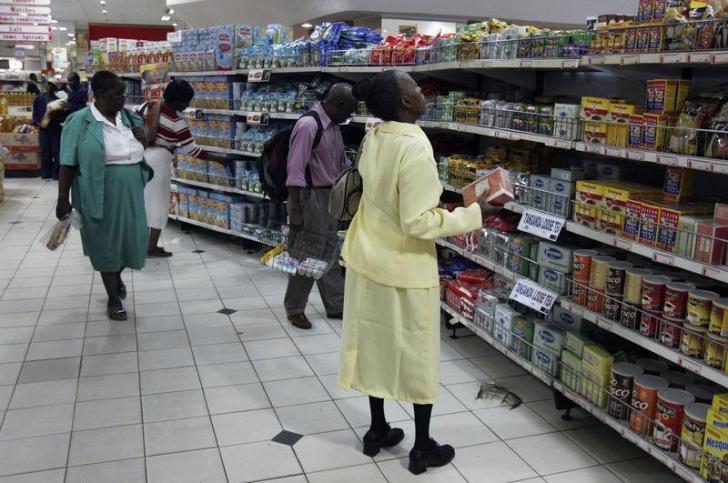News / Local
Zimbabweans being sold expired, underweight goods
18 May 2024 at 09:55hrs |
0 Views

Over a thousand businesses have been charged with selling expired and underweight goods, among other offenses, according to the Industry and Commerce Ministry.
Most of the semi-formal shops were fined for various violations under the Consumer Protection Act. These offenses include selling underweight products, expired goods, and improperly packaged and labeled items that pose health risks to consumers.
Douglas Runyowa, the Ministry's Consumer Affairs Chief Director, stated that the Consumer Protection Commission has been conducting raids and catching several businesses operating illegally. "The ministry, through its routine inspections and robust market surveillance systems, has noted a number of growing unethical practices in retail and wholesale shops throughout the country," Runyowa said in a statement this week. "Such practices include the selling of underweight products, expired goods, improperly packaged and unlabeled goods, and in extreme cases, unlicensed goods which pose a hazard to human beings as they have not been cleared nor tested by the health authorities."
Many buildings in central business areas have been converted into small tuck shops selling groceries and clothes, with reports indicating that these shops also sell smuggled products. Runyowa highlighted that non-compliance levels in semi-formal shops exceed 60%, which he described as untenable. "As we undertake our inspections, we have penalized errant business players in numerous identified hotspots," he said.
In May alone, the ministry inspected 5,104 products for weights and measurements, issuing 11,030 penalties for non-compliant products. "Equally, the Consumer Protection Commission has undertaken a total of 1,903 compliance checks, issuing compliance notices to 691 businesses," Runyowa added. "A total of 1,309 businesses were prosecuted for various offenses, such as selling expired products. We have also recalled expired products from the market in line with the Consumer Protection Act."
Additionally, some businesses were fined for refusing to accept the newly introduced Zimbabwe Gold currency. "Furthermore, 688 businesses were issued compliance notices for not displaying product prices in local currency, and most were referred to the Financial Intelligence Unit," Runyowa said.
The ministry is engaging businesses and manufacturers through their member organizations, urging them to comply with the law. The government has also translated the Consumer Protection Act into more than six indigenous languages, including Braille, to empower consumers with knowledge of their rights. "We want consumers to know and demand their rights as they engage in business," Runyowa emphasized. "We are also conducting awareness programs across various provinces, having undertaken over 100 consumer awareness initiatives nationwide this quarter alone."
Most of the semi-formal shops were fined for various violations under the Consumer Protection Act. These offenses include selling underweight products, expired goods, and improperly packaged and labeled items that pose health risks to consumers.
Douglas Runyowa, the Ministry's Consumer Affairs Chief Director, stated that the Consumer Protection Commission has been conducting raids and catching several businesses operating illegally. "The ministry, through its routine inspections and robust market surveillance systems, has noted a number of growing unethical practices in retail and wholesale shops throughout the country," Runyowa said in a statement this week. "Such practices include the selling of underweight products, expired goods, improperly packaged and unlabeled goods, and in extreme cases, unlicensed goods which pose a hazard to human beings as they have not been cleared nor tested by the health authorities."
In May alone, the ministry inspected 5,104 products for weights and measurements, issuing 11,030 penalties for non-compliant products. "Equally, the Consumer Protection Commission has undertaken a total of 1,903 compliance checks, issuing compliance notices to 691 businesses," Runyowa added. "A total of 1,309 businesses were prosecuted for various offenses, such as selling expired products. We have also recalled expired products from the market in line with the Consumer Protection Act."
Additionally, some businesses were fined for refusing to accept the newly introduced Zimbabwe Gold currency. "Furthermore, 688 businesses were issued compliance notices for not displaying product prices in local currency, and most were referred to the Financial Intelligence Unit," Runyowa said.
The ministry is engaging businesses and manufacturers through their member organizations, urging them to comply with the law. The government has also translated the Consumer Protection Act into more than six indigenous languages, including Braille, to empower consumers with knowledge of their rights. "We want consumers to know and demand their rights as they engage in business," Runyowa emphasized. "We are also conducting awareness programs across various provinces, having undertaken over 100 consumer awareness initiatives nationwide this quarter alone."
Source - newsday
Join the discussion
Loading comments…































